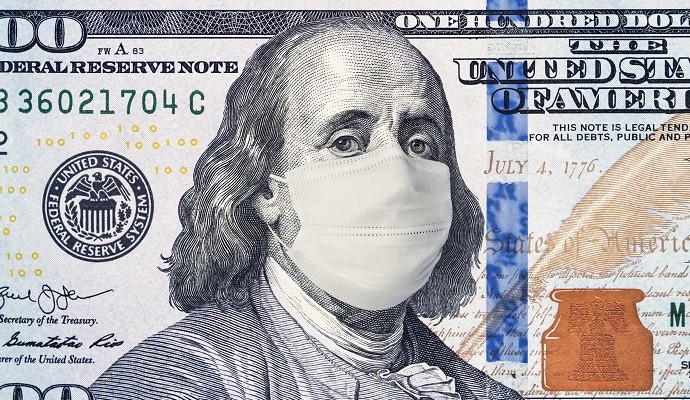Medicare Payments Top $2.8B for COVID-19 Hospitalizations, So Far
That number breaks down to over $25K in average Medicare payment per fee-for-service COVID-19 hospitalization, CMS reported.

Source: Getty Images
- So far this year, Medicare payments for fee-for-service COVID-19 hospitalizations has totaled $2.8 billion, according to updated data from CMS.
For more coronavirus updates, visit our resource page, updated twice daily by Xtelligent Healthcare Media.
Individual Medicare payments for fee-for-service COVID-19 hospitalizations ranged from a low of $5,248 to $70,685, the federal agency shared in the first of many planned monthly updates on the impact COVID-19 has had on the Medicare population.
On average, Medicare paid providers $25,255 for COVID-19 hospitalizations.
The data, which covered Medicare fee-for-service claims from January through June 20, also found COVID-19 hospitalization rates among racial and ethnic groups, confirming that COVID-19 has disproportionately affected minorities due, in part, to the higher rates of chronic conditions in these populations and issues related to social determinants of health.
There were over 160,800 COVID-19 hospitalizations through June 20, 2020, including 670 hospitalizations per 100,000 beneficiaries among Black beneficiaries.
Hospitals are losing money on COVID-19 hospitalizations. A report released earlier this month by FAIR Health pinpointed the median charge amount of the hospitalization of a COVID-19 patient at $34,662 for younger patients (23-30 years old) and $45,683 older patients (51 to 60 years old).
The median estimated allowed amounts, however, ranged from $17,094 for people over 70 years of age to $24,012 for people aged 51 to 60 years, the non-profit reported using its private healthcare claims data repository.
Private payers are slated to pay the largest portion of COVID-19 hospitalization costs, according to healthcare consulting firm Avalere.
The firm recently estimated that total costs for inpatient hospitalization due to COVID-19 will range from $9.6 billion to $16.9 billion in 2020, depending on cumulative hospitalizations through the end of 2020. Of those costs, private payers will pay between $5.6 billion to $9.9 billion in 2020.
Medicare, however, will bear the second largest portion, the firm stated.
The federal healthcare program is slated to pay between $3.5 to $6.2 billion by the end of the year, including federal government reimbursements for the treatment of uninsured COVID-19 patients under the Coronavirus Aid, Relief, and Economic Security (CARES) Act and other coronavirus legislation.
But Medicare has historically underpaid hospitals. According to the American Hospital Association (AHA), Medicare reimbursement was nearly $54 billion short of actual hospital costs in 2017, the year for which the Association had complete data.
Private payers are already estimated to reimburse providers more than double the amount Medicare would pay for common COVID-related categories of respiratory diagnoses, the Kaiser Family Foundation recently reported.
CMS has implemented a 20 percent Medicare add-on payment during the public health emergency, which was recently renewed through the end of October. Billions of dollars in funding through the Provider Relief Fund has also been distributed to hospitals and other providers to offset the cost of COVID-19.
The Medicare shortfall has contributed to falling operating margins in the past, but it could prove fatal to many providers during the COVID-19 pandemic.
The AHA projects hospitals to lose at least $323 billion by the end of 2020 as a result of COVID-19, even with the Medicare payment boost and additional coronavirus relief from the government.
“As policymakers and stakeholders continue to identify ways to address the spread of COVID-19 in the US, hospitalization cost and provider payment remain a key point of concern, particularly in geographies with high incidence rates,” said industry experts from Avalere.
